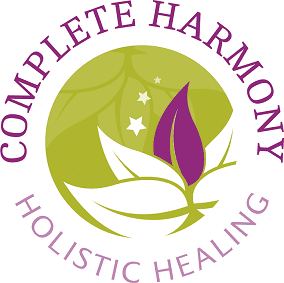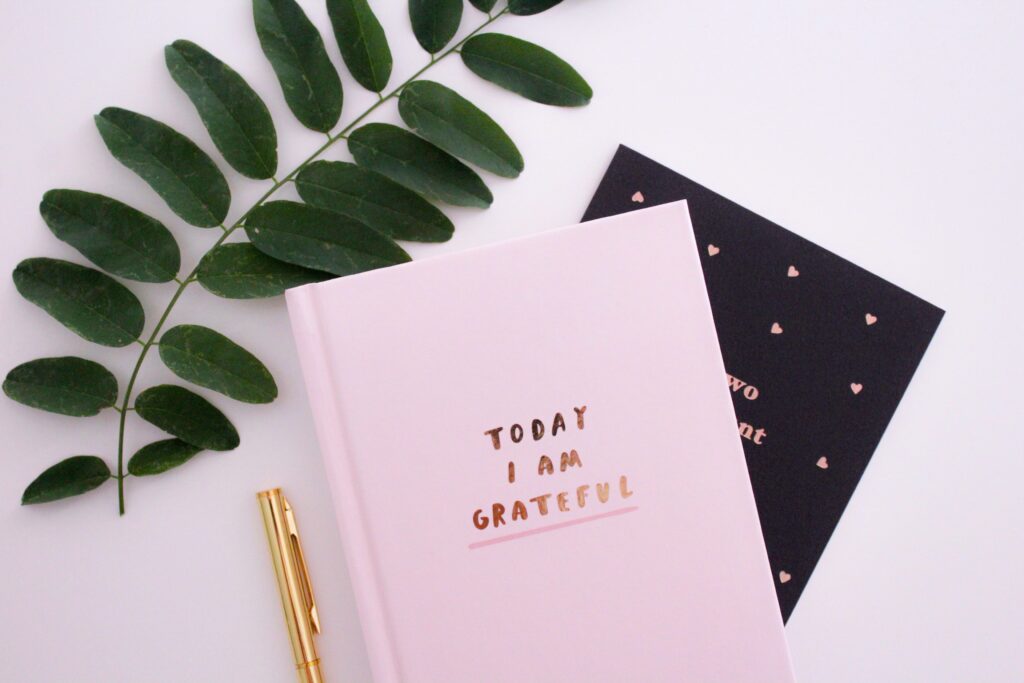Do you have a gratitude practise?
In a recent conversation, I said, if every day for a week you make a list of five different things you’re grateful for, you would have a list of 35 things. The response was “no-one has that many things to be grateful for!”
At first, this response surprised me. But on reflection, if life is busy and stopping to appreciate and recognise the good things in your life is not something you do, five things to come up with every day may sound impossible.
The truth is, it doesn’t have to take up a lot of time. It can be super quick and there are so many health and wellness benefits to having a gratitude practise.
Benefits of practising gratitude
You may already be well aware of things in your life that you are grateful for so why would you want to keep a note of these on paper, I hear you ask? Did you know you’re more likely to remember something if you write it down? This is because writing things down focuses the brain, allowing information to be stored so that it can be easily recalled from memory when needed.
Being able to recall the things you are grateful for will help you to stay positive and increase your resilience when things aren’t going so well. Here are some other benefits of recording things that you are grateful for: –
- Increases feelings of happiness – Studies have shown that keeping a gratitude journal increases your self-esteem and reduces feelings of stress, anxiety and worry.
- You will become more self-aware – Becoming consciously aware of what you are grateful for will help to increase your self-confidence. This will improve your relationships with others at work, at home with family and in your social life.
- Improves your mental health – Gratitude journaling helps you to appreciate what you have and not dwell on things you don’t have. Thinking in this way reduces negative emotions such as regret, jealousy, frustration, resentment and envy.
- Promotes a positive and more optimistic mindset – You will unconsciously seek out things to be grateful for. The ripple effect is that positive and grateful people will be attracted to you.
- You will have a better quality of sleep – With thoughts of gratitude and less mental stress or feelings of anxiety or depression, you are more likely to have a good night’s sleep. You’ll wake up feeling refreshed, rested and energised, ready for another great day. You’ll find more sleep tips here.
- You’re more likely to create healthy habits – When you can recognise good things in your life and how they make you feel, you will want to create opportunities to continue to feel uplifted. Creating healthy habits will become second nature.
Where to start
All you need is a notebook or some paper, a pen and the desire to get started! But what to write? Follow these 5 simple steps to get you going.

1. Keep it simple – Start with the seemingly little things. Remember, nothing is too small to be grateful for. Three things could be a sunny morning, a good night’s sleep and a hot cup of tea in the morning.
2. Get into a routine – Find a time of day to write that suits you. First thing in the morning may be good for you. This may help you to get your day off to a positive start. Or you may prefer to write as you get into bed. Write about things that have happened during the day that you are grateful for. When you stop for lunch or when you finish work for the day, before settling into your evening – you decide. Remember it can be done in as little as five minutes.
3. Be kind to yourself – Don’t put pressure on yourself to create a long list every day. You could end up resenting starting this practice and having to think of too many things every day. Three is a good number of things to get you started. When you’re ready you will want to add more each day.
4. Daily writing – Writing every day is great but to start with, aim for 3-4 days a week. Again, don’t put too much pressure on yourself or you will feel guilty if you miss a day. You can always add more days when you get into the swing of it.
5. Variety – Repetition is good but, on this occasion, writing different things each day is better. Gratitude journaling is a great tool to help you to get clarity on how you are feeling. We all love a warm sunny day and during the summer months, we have plenty of these but try to expand your thoughts and find other things that you are grateful for too.
Add your emotions
Once you’ve got into the swing of things, to increase self-confidence and access more of the benefits of feeling grateful, add why you are grateful for the things on your list. Say how they make you feel. For example, I’m grateful for a sunny morning because my walk to work will be more enjoyable.
If you don’t want to keep a gratitude journal, how about a gratitude jar? If you are a visual person this will be great for you. Use an empty jar to store pieces of paper that you have written something you are grateful for on. As the days go by you will be able to see the jar fill up and this too will be something to be grateful for.
When you’re having a bad day, you can look back over the pages in your gratitude journal or pull a piece of paper from your jar and use this as a reminder of the good things or good times in your life.
Gratitude Journals
If you want to have a little more structure or some guidance when recording your gratitude, you could invest in a gratitude journal. These are readily available, and each page provides a space to write the date, followed by a sentence starting Today I am grateful for …………. and you fill in the blanks. A more in-depth gratitude journal will ask more direct questions for you to answer.
So, what are you waiting for? Grab a notebook and get started.
Still not sure? Well, the good news is I run journaling workshops. These 1-2-1 sessions are run over Zoom and I will show you how to create a gratitude journaling practise. We will dive deeper and go through how to create a bespoke gratitude journaling practice for you by looking at:
- what it is in more details
- why you want to start
- what you want to gain from it
- when is the best time and place for you to write
By the end of the session, as well as lots of ideas and prompts, you will also have enough information to get your gratitude journaling practise off to a great start. If you’re interested in learning more about journaling and want support getting started on your journaling journey, use the link below to get in touch.
1-2-1 Journaling Workshop
About Sharon
 Sharon lives with her partner, Geoff, in Warwickshire and they have two adult children. She worked for over 25 years in an office environment, gaining qualifications to degree level in finance, business, and management. While there Sharon witnessed and experienced many stressful situations and suffered illnesses that were stress-related.
Sharon lives with her partner, Geoff, in Warwickshire and they have two adult children. She worked for over 25 years in an office environment, gaining qualifications to degree level in finance, business, and management. While there Sharon witnessed and experienced many stressful situations and suffered illnesses that were stress-related.
Sharon was advised to make some changes to her lifestyle which included trying complementary therapies. After experiencing the benefits of complementary treatments, Sharon decided to retrain and share her knowledge and experiences to help others recognise and manage their own physical and emotional stress and anxiety levels.
She has been working as a complementary therapist for over 15 years now and loves helping people manage and reduce their stress levels to feel uplifted, focused, positive and empowered about their lives.




